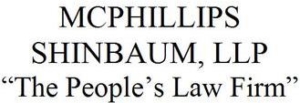The Importance of Medical Records in Personal Injury Claims
When you’re seeking compensation for a personal injury, your medical records may play a critical role in whether or not you receive a fair settlement offer. Medical expenses are often the largest portion of a personal injury settlement, and with complete medical records, you can prove your injuries and the costs that come with treating them.
Getting full and fair compensation often starts with finding the right attorney for your personal injury claim. Set up a consultation with the team at McPhillips Shinbaum and attorney Aaron Luck by giving us a call at 334-262-1911. We look forward to helping you.
Proving the Nature and Severity of Injuries
Medical records can go a long way in proving the severity and extent of your injuries. Medical records may show when a patient sought treatment, which diagnoses they received, treatment plans that were recommended, and progress on their recovery. Comprehensive medical records may also show a patient’s diagnostic testing, medical imaging, and care provider observations. All of this evidence makes it very hard for the other party’s insurance company to claim that you are exaggerating your injuries or making them up entirely.
Highlighting the Need for Medical Treatment
Even if the insurance company is willing to admit that you are injured, they don’t always necessarily agree that you need medical care. They’ve been known to say that your care was frivolous or excessive, or even worse, just a way to fluff up the amount of money you ask for. Thorough medical records show what prescription medications you take for your condition, how often you have medical appointments, which specialists you see, which treatments you have tried, and which treatments have helped you make progress.
If your injuries aren’t yet completely healed, your medical records can also show your ongoing care needs and provide insight into your prognosis. This is particularly important if you are likely to need care for the rest of your life, as the doctor’s recommendations and observations may be used to determine how much money you receive for future medical care.
Demonstrating Pain and Suffering
Putting a dollar amount to your pain and suffering feels unnatural. For some, it even feels wrong—how can you ask for money for a loss that isn’t financial? The fact is that money is the only type of compensation that the civil court can award, and you should get every dollar you are entitled to.
How, then, do medical records prove your pain and suffering? Doctors often note patients’ pain levels in their charts. They also document the type of medications a patient receives for pain, what physical limitations they struggle with as a result of their pain, and the progress they make over time.
Insurance companies aren’t quick to pay out additional money for pain and suffering. Medical records can help back up your claims of pain and suffering with actual medical documentation. Sometimes, you just need the insurance adjuster to see you as a person—and sometimes, thorough documentation of pain and suffering can make that happen.
Avoiding Pre-Existing Conditions Accusations
Insurance companies sometimes go low when they are trying to avoid paying out a full and fair settlement. That may mean implying—or saying outright—that your current injuries are a result of pre-existing conditions, not their client’s actions. Your medical documentation may disprove that. Doctors can provide their opinion on the source of injuries and subsequent pain, making it clear that your injuries are in line with what other accident victims experience. They may also comment on past injuries and the fact that they do not align with your current symptoms and pain levels. In these claims, it is often a matter of getting ahead of the insurance company, anticipating their next move, and having a rebuttal ready for it.
Call McPhillips Shinbaum for Help with Your Personal Injury Case
If you’ve been injured in a Montgomery car accident or other type of accident, you don’t need to go through this challenging time alone. Attorney Aaron Luck at McPhillips Shinbaum is committed to helping victims like you fight for the compensation they are owed. Take the first step in your claim now by calling us at 334-262-1911 or filling out our online contact form.

















